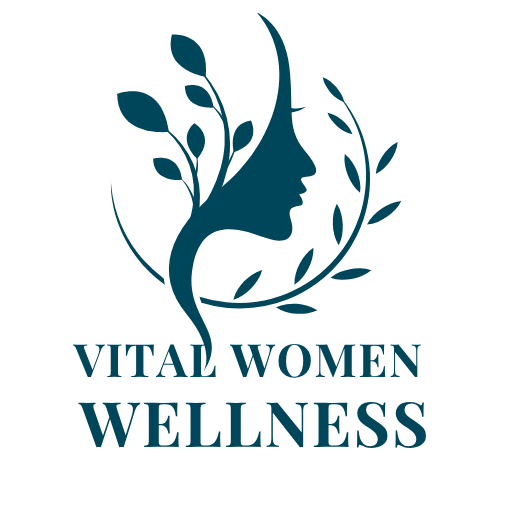The Menopause Nutrition Puzzle
Menopause marks a significant shift in a woman’s life, bringing with it a host of physical and emotional changes. As estrogen levels decline, our bodies need different nutritional support to maintain health and vitality.
Understanding these needs allows us to adapt our diets and support our well-being during this transition.
1. Calcium and Vitamin D: The Foundation of Bone Health
The Importance of Calcium
Calcium plays a crucial role in maintaining strong bones, which becomes even more critical during menopause. As estrogen levels drop, our bones become more susceptible to losing density, increasing the risk of osteoporosis.
To combat this, aim for about 1,200 milligrams of calcium daily. Dairy products are excellent sources, but don’t worry if you’re lactose intolerant or following a plant-based diet.
Leafy greens like kale and collard greens, as well as fortified plant-based milk choices, can provide plenty of calcium.
I’ve found that incorporating a variety of calcium-rich foods throughout the day makes it easier to meet my needs. For instance, I might have Greek yogurt with breakfast, a kale salad for lunch, and include a serving of fortified plant milk in my evening routine.
The Vital Role of Vitamin D
While calcium is essential, it can’t do its job effectively without vitamin D. This nutrient helps our bodies absorb calcium and deposit it in our bones.
Unfortunately, many of us don’t get enough vitamin D, especially as we age and our skin becomes less effective at synthesizing it from sunlight.
Fatty fish like salmon and mackerel are excellent dietary sources of vitamin D. Egg yolks also contain this nutrient.
However, given the challenges in obtaining enough vitamin D from diet alone, many healthcare providers recommend supplementation for menopausal women.
I’ve personally found that a combination of dietary sources and a supplement recommended by my doctor has helped me maintain healthy vitamin D levels. Remember to ask with your healthcare provider before starting any new supplement regimen.
Recommended Product:
BulkSupplements.com Calcium Carbonate & Vitamin D3 Softgels – This Calcium with Vitamin D3 softgels, offering 960mg Calcium & 60mg Vitamin D3, are designed with your convenience in mind, offering easy-to-swallow softgels that can seamlessly become part of your existing health regimen. Enhance your nutritional intake by taking the recommended dose alongside your first meal of the day.
Elevate your daily wellness routine with this Calcium Carbonate with Vitamin D3 softgels, or Calcium with Vitamin D pills. These are not just supplements; Calcium with Vitamin D supplements are a daily investment in your wellbeing, meticulously formulated to ensure your body receives the perfect balance of essential minerals for optimal health.
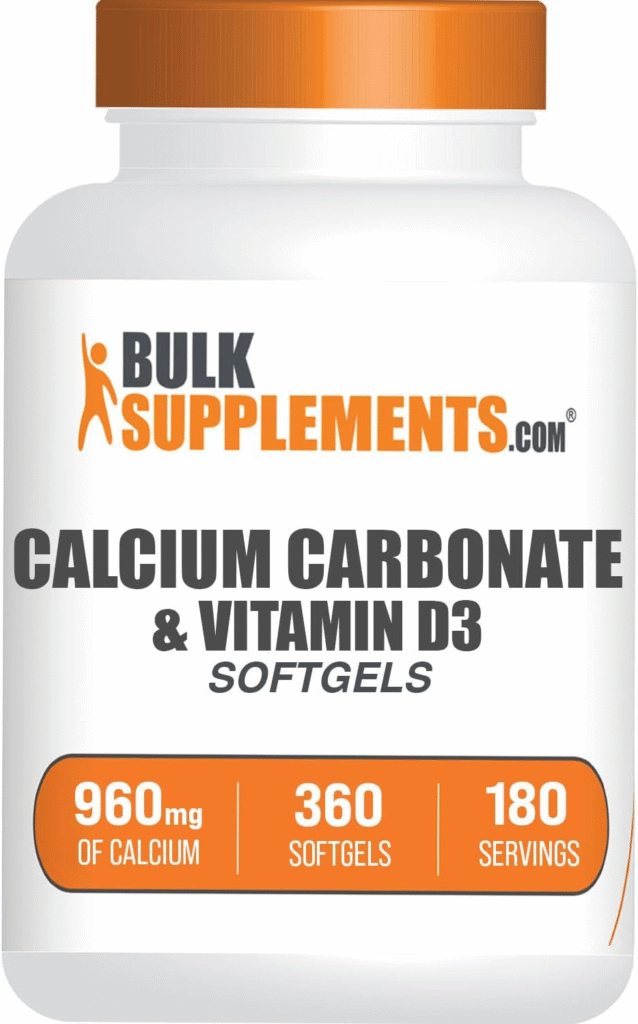
2. Phytoestrogens: Nature’s Hormone Helpers
Phytoestrogens are plant compounds that can mimic some of the effects of estrogen in our bodies. While they’re not a replacement for the estrogen we lose during menopause, they may help reduce some symptoms, particularly hot flashes and night sweats.
Soy: A Phytoestrogen Powerhouse
Soy products are rich in isoflavones, a type of phytoestrogen. Tofu, tempeh, and edamame are excellent options to include in your diet.
However, the effects of soy can vary from person to person.
I’ve experimented with incorporating more soy into my diet and found that it helped reduce the frequency of my hot flashes. However, I know other women who didn’t notice much difference.
It’s all about finding what works for your body.
Beyond Soy: Other Phytoestrogen Sources
While soy is perhaps the best-known source of phytoestrogens, it’s not the only option. Flaxseeds and sesame seeds are rich in lignans, another type of phytoestrogen.
Legumes like chickpeas and lentils also contain these useful compounds.
I like to sprinkle ground flaxseeds on my morning oatmeal or add them to smoothies. Hummus made from chickpeas makes a great snack and provides a phytoestrogen boost.
Recommended Product:
SOLARAY PhytoEstrogen Menopause Supplements – This powerful PhytoEstrogen uses non-GMO soy, Black Cohosh, Dong Quai, and Wild Yam that is guaranteed to contain 2.5% Diosgenin, a plant estrogen that may be converted to progesterone. Designed to help support a healthy estrogen balance in women, our scientifically formulated blend is made with estrogen-like plant compounds.
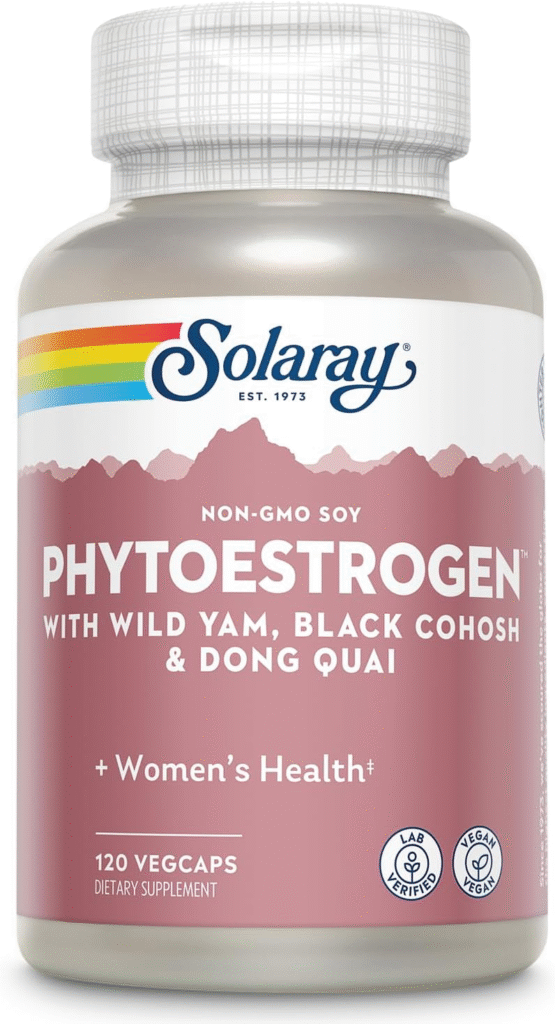
3. Omega-3 Fatty Acids: Mood Stabilizers and Heart Protectors
Omega-3 fatty acids play a crucial role in brain health and may help stabilize mood, which can be particularly useful during menopause when mood swings are common. Additionally, these essential fats support heart health, which becomes increasingly important as our risk of heart disease rises with declining estrogen levels.
Fish: The Classic Omega-3 Source
Fatty fish like salmon, sardines, and mackerel are excellent sources of omega-3s, particularly EPA and DHA. Aim to include fish in your diet at least twice a week.
I’ve made it a habit to have salmon for dinner once a week and to keep canned sardines on hand for quick lunches. Not only do I enjoy the taste, but I’ve noticed improvements in my mood stability since increasing my omega-3 intake.
Plant-Based Omega-3 Options
If you’re not a fan of fish or follow a plant-based diet, there are still ways to get your omega-3s. Chia seeds, walnuts, and flaxseeds are rich in ALA, a type of omega-3 that our bodies can convert (albeit less efficiently) to EPA and DHA.
I often add a tablespoon of chia seeds to my morning yogurt or sprinkle chopped walnuts on my salads. These small additions can make a big difference in your overall omega-3 intake.
Recommended Product:
Triple Strength Omega 3 Fish Oil – This fish oil pills are highly refined using the best purification method: molecular distillation. This process increases potency and filters out mercury, heavy metals, PCB’s, and other toxins to below detectable limits for human consumption.
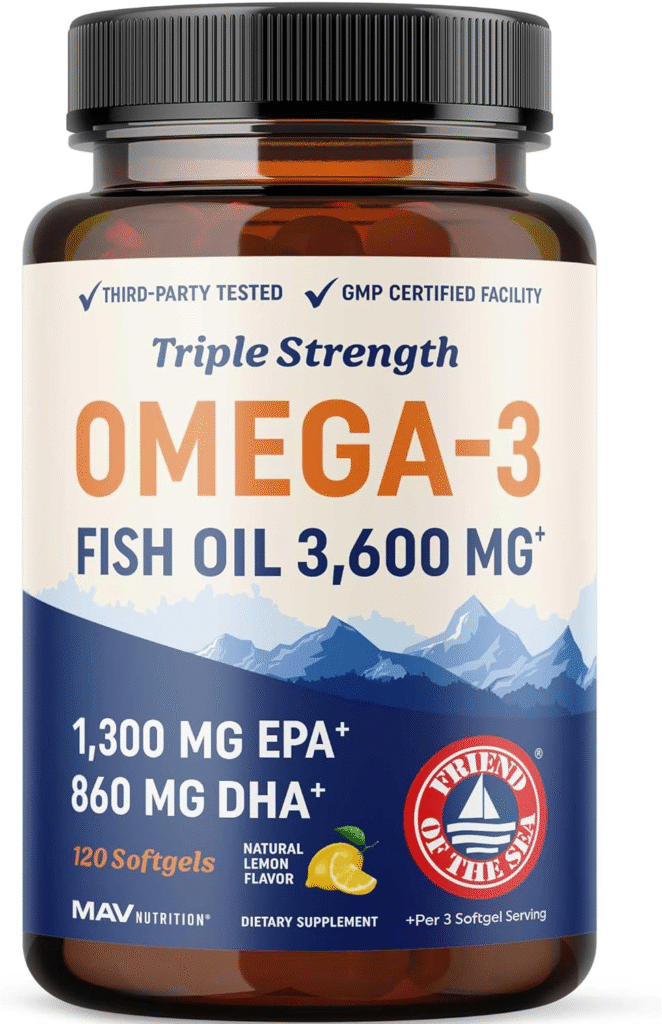
Fish Oil
4. Fiber: Your Digestive System’s Best Friend
Many women experience digestive changes during menopause, including constipation and bloating. Fiber can help reduce these issues while also supporting weight management, which can become more challenging during this life stage.
Soluble vs. Insoluble Fiber
Both types of fiber are important for digestive health. Soluble fiber, found in foods like oats, beans, and apples, can help lower cholesterol and regulate blood sugar levels.
Insoluble fiber, found in whole grains and many vegetables, adds bulk to stool and helps prevent constipation.
I aim for a mix of both types in my diet. A bowl of oatmeal topped with berries and chia seeds provides both soluble and insoluble fiber, setting a positive tone for my digestion throughout the day.
Increasing Fiber Intake Gradually
If you’re not used to eating a lot of fiber, it’s important to increase your intake gradually to avoid digestive discomfort. Start by adding one extra serving of high-fiber food per day and slowly build up over time.
Remember to drink plenty of water as you increase your fiber intake. This helps the fiber do its job effectively and prevents constipation.
Recommended Product:
GOBIOTIX Prebiotic Fiber Supplement Powder – This clinically proven tasteless prebiotic, made from Nutraflora FOS, is an organic, food-based blend with a nutritional makeup, rich in beneficial mirco and macro nutrients S that your body can more readily recognize and absorb. This prebiotic fiber supplement also blocks dietary lectins, completely forming a healthy gut ecosystem.
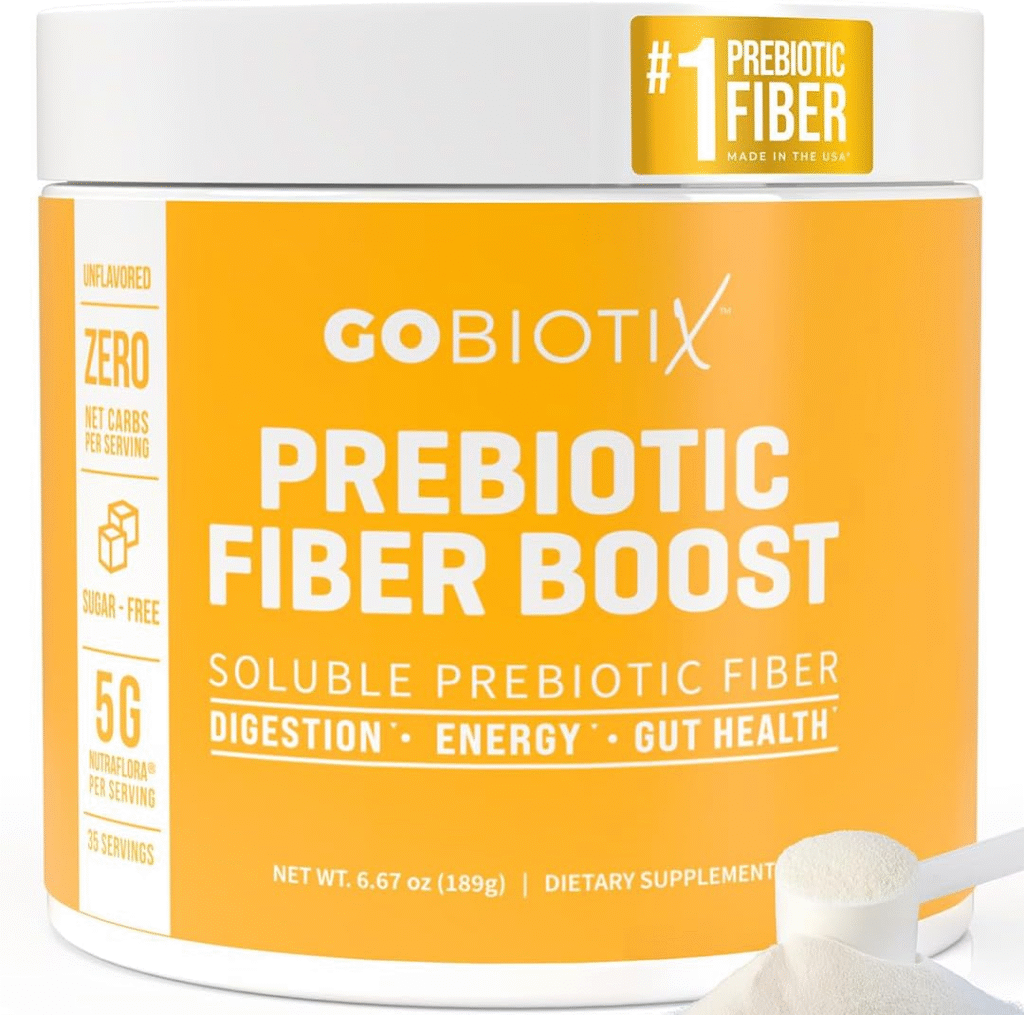
5. Antioxidants: Your Anti-Aging Allies
As we age, our bodies become more susceptible to oxidative stress, which can speed up the aging process. Antioxidants are compounds that fight against this oxidative damage, potentially helping to keep our skin elastic and our minds sharp.
Berries: Antioxidant Superstars
Berries, particularly blueberries, strawberries, and blackberries, are packed with antioxidants. These fruits taste great but may also help protect our cells from damage.
I’ve made it a habit to include a serving of berries in my breakfast or as a snack every day. Not only do I enjoy the taste, but I like knowing I’m providing my body with a boost of protective compounds.
The Importance of Colorful Vegetables
When it comes to antioxidants, the more color on your plate, the better. Bell peppers, sweet potatoes, and leafy greens are all excellent sources.
Each color represents different types of antioxidants, so aim for variety.
I try to include at least three different colored vegetables in my main meals. This ensures I’m getting a wide range of antioxidants and makes my meals more visually appealing and enjoyable.
Recommended Product:
Super Antioxidants Supplement – This Antioxidant Blend is American-made, using global ingredients, under strict GMP guidelines. With naturally potent ingredients like Trans Resveratrol and Hawaiian Noni, you’d be hard pressed to find anything better!
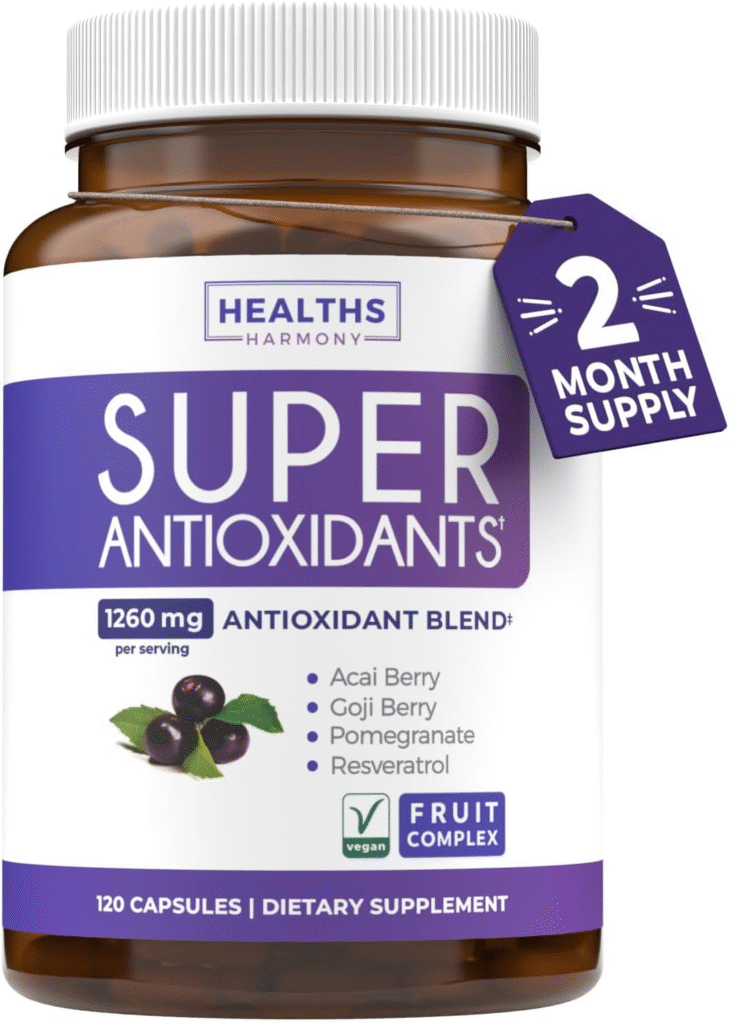
6. Magnesium: The Relaxation Mineral
Sleep disturbances are a common complaint during menopause, and magnesium might be the key to better sleep. This mineral plays a crucial role in regulating our sleep-wake cycle and can help relax muscles and reduce anxiety.
Food Sources of Magnesium
Dark leafy greens, nuts (especially almonds), seeds, and whole grains are rich in magnesium. Including these foods in your daily diet can help ensure you’re getting enough of this important mineral.
I’ve found that a handful of almonds as an afternoon snack or a spinach salad with dinner helps me unwind in the evening. Some women also find that a warm bath with Epsom salts (magnesium sulfate) before bed helps promote relaxation and better sleep.
Magnesium and Bone Health
In addition to its role in sleep and relaxation, magnesium is also crucial for bone health. It works alongside calcium and vitamin D to maintain strong bones, making it particularly important during menopause when bone density can decline.
Recommended Product:
BIOptimizers Magnesium Breakthrough Supplement – This supplement is free from preservatives, mercury, lead, and fluoride. Each capsule delivers magnesium in a bioavailable form, designed for easy uptake and use throughout the body.
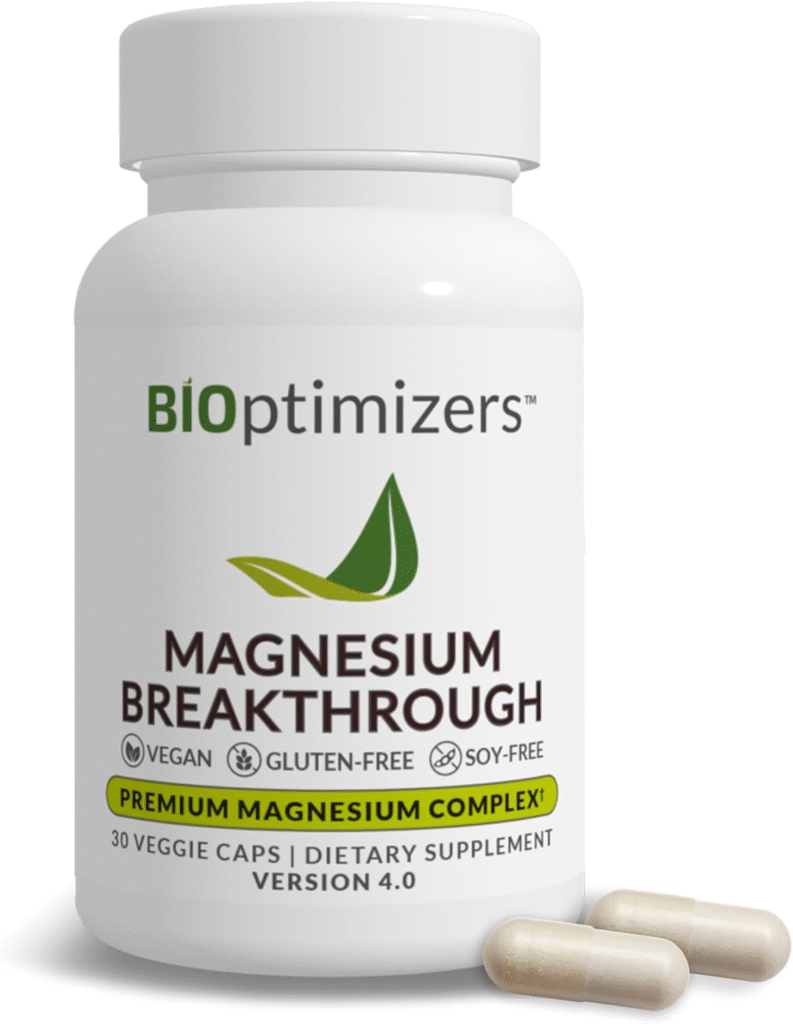
7. Hydration: The Often Overlooked Nutrient
While not a nutrient in the traditional sense, proper hydration is crucial during menopause. Adequate water intake can help reduce dry skin, minimize the frequency of hot flashes, and support overall health.
How Much Water Do You Need?
The old advice of eight glasses a day is a good starting point, but individual needs can vary based on factors like activity level, climate, and overall health. A good rule of thumb is to drink enough so that your urine is pale yellow.
I keep a reusable water bottle with me throughout the day as a reminder to stay hydrated. I also set reminders on my phone to prompt me to drink water regularly, especially on busy days when it’s easy to forget.
Beyond Plain Water
While water is the best choice for hydration, other beverages can contribute to your daily fluid intake. Herbal teas, particularly those without caffeine, can be a soothing way to increase your fluid intake, especially in the evening.
Don’t forget that many fruits and vegetables have high water content and can contribute to your hydration. Cucumbers, watermelon, and oranges are particularly hydrating choices.
Recommended Product:
Hi-Lyte Keto K1000 Electrolyte Powder – Keto K1000 electrolyte powder is a high potassium supplement designed to help with hydration and increase cellular energy. This supplement provides 50 servings of electrolyte and trace mineral support powder. In addition to potassium, it also contains essential minerals such as Zinc, Calcium, Manganese, Sodium, and more. This is a non-flavored electrolyte drink- N0 SUGAR/ NO STEVIA!
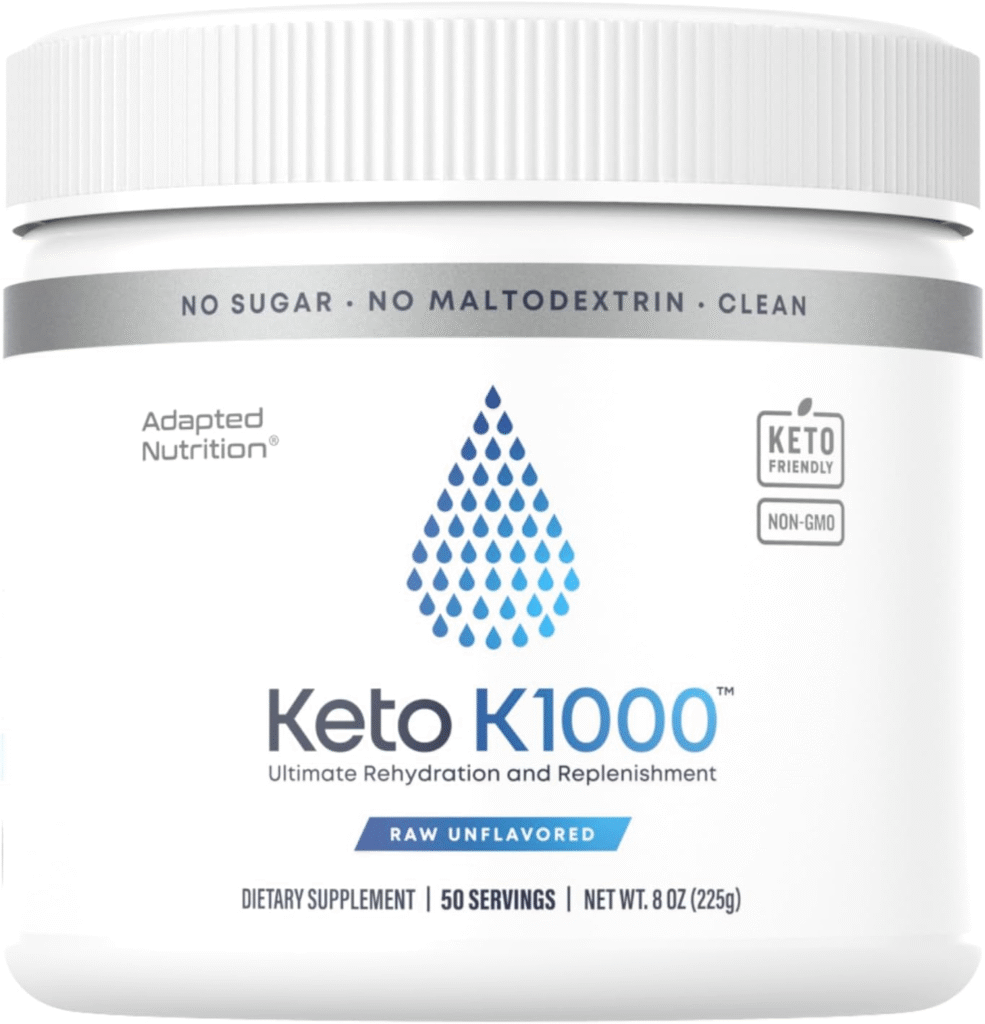
Putting It All Together: Building Your Menopause-Friendly Plate
Creating a balanced diet that incorporates all these nutrients might seem overwhelming, but it doesn’t have to be. Here’s a simple framework to help you build a menopause-friendly plate:
- Fill half your plate with colorful fruits and vegetables for antioxidants and fiber.
- Add a quarter plate of lean protein, including fatty fish for omega-3s or plant-based proteins like tofu or legumes for phytoestrogens.
- Include a quarter plate of whole grains for fiber and B vitamins.
- Don’t forget a source of healthy fats, like a sprinkle of nuts or seeds or a drizzle of olive oil.
- Pair your meals with calcium-rich foods or beverages, like a glass of fortified plant milk or a side of yogurt.
The key to a balanced diet is variety. By incorporating a wide range of nutrient-dense foods, you’re more likely to meet your nutritional needs and enjoy your meals.
Listening to Your Body
Every woman’s experience with menopause is unique. Pay attention to how different foods make you feel.
Some women find that certain foods trigger hot flashes or mood swings, while others may uncover new favorites that help them feel their best.
Keeping a food diary can be an empowering way to track how different meals affect your symptoms. This practice has helped me identify which foods exacerbate my hot flashes and which ones seem to help.
What works for one woman may not work for another, so be patient as you uncover what’s best for your body.
The Importance of Mindful Eating
As we navigate the changes that come with menopause, how we eat becomes just as important as what we eat. Practicing mindful eating can help us tune into our body’s needs and develop a healthier relationship with food.
Take the time to savor your meals, eating slowly and without distractions. This can help improve digestion and increase satisfaction with smaller portions, which can be helpful if you’re struggling with menopausal weight gain.
I’ve found that setting aside dedicated time for meals, away from screens and other distractions, has helped me enjoy my food more and feel more satisfied with my portions. It’s also given me a chance to check in with my body and really notice how different foods make me feel.
Beyond Nutrition: A Holistic Approach
While a balanced diet is crucial for managing menopause symptoms, it’s just one piece of the puzzle. Regular exercise, stress management techniques like meditation or yoga, and getting adequate sleep all play important roles in navigating this transition.
The Importance of Regular Exercise
Regular physical activity can help manage weight, improve mood, and even reduce the frequency and intensity of hot flashes. Weight-bearing exercises are particularly important for maintaining bone density.
I’ve found that a combination of strength training and low-impact cardio like walking or swimming has helped me feel stronger and more energetic. Plus, exercise is a great stress-reliever, which is especially valuable during the emotional ups and downs of menopause.
Stress Management Techniques
Stress can exacerbate many menopause symptoms, so finding effective ways to manage stress is crucial. Techniques like meditation, deep breathing exercises, or yoga can be incredibly helpful.
I’ve incorporated a short meditation practice into my daily routine, and it’s made a noticeable difference in my overall stress levels and ability to handle mood swings.
The Importance of Sleep
Getting enough quality sleep can be challenging during menopause, but it’s crucial for overall health and well-being. Establishing a consistent sleep routine, creating a cool and comfortable sleep environment, and avoiding screens before bedtime can all help improve sleep quality.
Embracing the Change
Menopause is a significant life transition, but it doesn’t have to be a negative one. By nourishing your body with the right nutrients, you’re not just managing symptoms – you’re setting the stage for a vibrant and healthy next chapter of your life.
There’s no one-size-fits-all approach to menopause nutrition. Be patient with yourself as you explore what works best for you.
With the right balance of nutrients, mindful eating practices, and a positive attitude, you can navigate menopause with confidence and grace.
Frequently Asked Questions
What foods help with menopause symptoms?
Foods rich in phytoestrogens like soy products, flaxseeds, and legumes may help reduce some menopause symptoms. Calcium-rich foods, fatty fish high in omega-3s, and foods high in fiber can also be beneficial.
How much calcium do I need during menopause?
Most women need about 1,200 milligrams of calcium daily during and after menopause. This can be obtained through a combination of dietary sources and supplements if necessary.
Can diet help with menopausal weight gain?
A balanced diet rich in fiber, lean proteins, and healthy fats, combined with regular exercise, can help manage weight during menopause. Portion control and mindful eating are also important factors.
Are there any foods I should avoid during menopause?
While individual responses vary, some women find that spicy foods, caffeine, and alcohol can trigger hot flashes. It’s best to pay attention to your body’s reactions and adjust accordingly.
How can I increase my vitamin D intake?
Fatty fish, egg yolks, and fortified foods are good dietary sources of vitamin D. However, many women may need supplements to meet their needs, especially if they have limited sun exposure.
Can omega-3 fatty acids help with mood swings during menopause?
Omega-3 fatty acids play a role in brain health and may help stabilize mood. Including fatty fish in your diet or considering a supplement (after consulting with a healthcare provider) may be beneficial.
What are phytoestrogens and how can they help during menopause?
Phytoestrogens are plant compounds that can mimic some effects of estrogen in the body. They may help reduce some menopause symptoms, particularly hot flashes and night sweats.
How much water should I drink during menopause?
While individual needs vary, aiming for at least 8 glasses of water a day is a good starting point. Proper hydration can help with symptoms like dry skin and may reduce the frequency of hot flashes.
Can certain foods help with bone health during menopause?
Foods rich in calcium, vitamin D, and magnesium are crucial for bone health. This includes dairy products, leafy greens, fatty fish, and nuts and seeds.
How can diet help with sleep issues during menopause?
A balanced diet that includes foods rich in magnesium and tryptophan, like nuts, seeds, and turkey, may help improve sleep quality. Avoiding caffeine and heavy meals close to bedtime can also be beneficial.
Key Takeaways:
- Focus on calcium and vitamin D for bone health
- Incorporate phytoestrogens to help manage hormonal symptoms
- Prioritize omega-3 fatty acids for mood and heart health
- Increase fiber intake for digestive health and weight management
- Embrace antioxidant-rich foods to combat aging
- Don’t forget the importance of proper hydration
- Listen to your body and adjust your diet as needed
- Practice mindful eating for overall well-being
- Approach menopause holistically, combining nutrition with exercise and stress management
Disclaimer
The information contained in this post is for general information purposes only. The information is provided by Navigating Menopause: Key Nutrients for a Balanced Diet and while we endeavor to keep the information up to date and correct, we make no representations or warranties of any kind, express or implied, about the completeness, accuracy, reliability, suitability or availability with respect to the website or the information, products, services, or related graphics contained on the post for any purpose.
